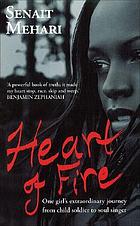
#584
Title: A History of the World in 10 1/2 Chapters
Author: Julian Barnes
Publisher:
Year: 1990
320 pages
This is my first Julian Barnes, and as I read I was very excited to have found him. I was all set to give this a five-star rating until I reached the half-chapter alluded to in the title. It's the only section of the audiobook I played at a faster rate so I could get through it more quickly. It's not clear to me whether it was an authorial intrusion or a fictive voice (either of which would have been fine); I kept wanting to yell at Barnes, "Don't wreck what you've made! It stands on its own! Don't bludgeon the reader with heavy-handed explanations that link the 10 stories!" In fairness, I shout this a lot at Chuck Palahniuk as well: "Trust your story! Don't undo it!" though, to be perfectly honest,. I've stopped reading Palahniuk after too many experiences of this type. Suggestion: Ignore the blundering exegetic half-chapter; read only the other 10 stories.
Those other 10 stories are varied and delightful. I enjoyed Barnes's wry and acerbic narration, and really admired the resonance across the stories, which mirror,amplify, invert, distort, and corrupt each others' symbols and tales in a way that wonderfully exemplifies the central themes of redaction and redemption, awe and doubt, and cyclicity and free will. Yes, at times these chapters can get a bit meat-fisted as well, but nothing like the half-chapter which, if I were Queen of the Universe (or at least in heaven), I would excise for the good of the masses, telling only the history of the world in 10 chapters.


